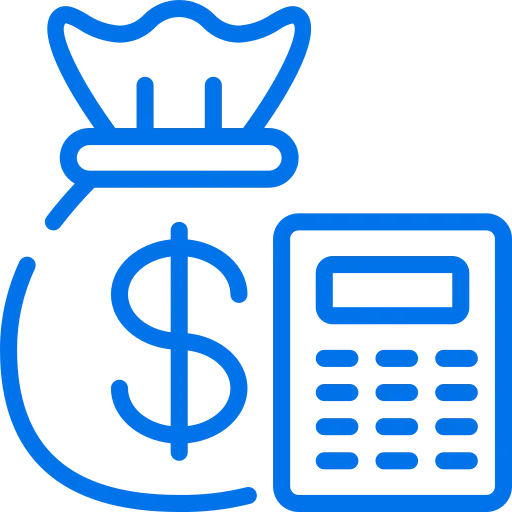Did you know? You can borrow against the assets of the business you're buying. These assets include vehicles, equipment, projected business value or you can even secure against outstanding invoices.
Taking out a loan to buy an existing business
Buying an existing business, rather than starting one yourself, allows you to hit the ground running with a current client-base, infrastructure and cashflow. Using a loan to fund your business purchase saves you from needing to budget and save for potentially years in order to build up the necessary funds. There are a range of finance options you can apply for, from traditional business loans to funding from venture capitalists and angel investors.
You will need to prove to the lender that your business plan is sound, and so you will usually need financial projections of the business, previous management experience, a clear budget and a good credit score.
What should I think about when taking out a loan for a small business?
Loans to buy established businesses are not as straightforward as getting a business loan for a company you're already running. There are several factors you'll need to consider before you begin the loan application process. These include:
- How much money will you need? You'll have to work out how much money you need to borrow. If you borrow too much, you'll be paying more in interest than you need to. If you borrow too little, you won't have enough to cover your costs. As a result, you may need to apply for a second loan. You need to take into consideration all the costs involved. If relevant, you'll also have to ensure you have enough capital to keep your business going.
- Do you have a sound business plan? It's not just about buying the business – it's also about how you'll manage it. The lender will want to know your plan. You should be able to demonstrate how the business will manage expenditure and income, how it will achieve profitability and how long this will take.
- Have you considered your application timeline? It can take anywhere from hours to months to qualify for a business loan. You need to consider whether you'll get funding when you want it. This may be a consideration if the timeline to buy the business is tight. You should take into account how long lenders take to process loan applications. Bank loans generally take longer, sometimes even months. However, alternative lenders have faster approval and processing times. You could even receive funds the same day or the next working day.
- How will you make your repayments? You'll need to work out how long it will take for you to pay back the loan. How much will you be able to afford to repay every month? Will it be a consistent amount or can you pay back more as the business grows? Will you be able to make your repayments from the cash generated from the business?
Where can I take out a loan to buy a business?
There are many types of business loans, but these are the ones most commonly used for the purchase of an existing small business.
Banks
Most of Australia's big banks have funding available for capable new businesses. You're likely to find that small business loans from banks require security. This is usually in the form of commercial or residential real estate.
Credit unions
These are not-for-profit financial institutions owned by their members. Some of these members may be entrepreneurs looking for a good investment. If you're a member of a credit union, you may be able to get funding from them.
Alternative lenders
Traditional lenders aside, there are online lenders like neobanks and peer-to-peer lenders that may be open to financing the purchase of the business. Compared to traditional lenders, their flexible lending criteria is more flexible and they have fast application processes. However, the borrowing limits may be lower than that of traditional banks.
Vendor finance
With this form of finance, the loan is built into the terms of the sale and repaid with future profits. For instance, someone may want to sell a business for $500,000, but you can only afford $200,000. A vendor finance agreement might involve the seller building a $300,000 loan into the sale. The loan will be repaid in the form of 10% of business profits. The exact terms and conditions of these deals vary depending on what you negotiate with the seller.
What do I need to improve my odds of approval for a business loan?
The main obstacle between you and finance is your ability to convince the lender you can buy a small business and make it profitable. As a general rule, the following will help you get your application over the line:

Evidence
You will first need to prove that the business you're looking to buy will be profitable. This means financial statements to back your claim and financial modelling for the future. You will need to consider how profitable the business will be in concrete dollar values and back it up with as much evidence as possible. The lender will make a yes or no decision based largely on whether it's convinced the business will be profitable. You must have formal financial projections.

Experience
The lender needs to know you have the experience and capability to bring home these profits. Having relevant small business management and financial experience will inspire more confidence. Don't hesitate to mention how your own business history can help you succeed.

A strong personal and business credit score
Your credit score determines your creditworthiness. Lenders may consider your personal credit score. If you own an existing business, your business credit history will also be taken into account. The stronger your credit score, the more likely you are to be approved for the loan. You may also be able to secure a lower rate.

A budget
You'll need to give the lenders a breakdown of how you plan to spend the money. This information will help the lenders determine when a return on investment can be expected. For instance, if the money is to go towards staff or refurbishment costs, they might expect a slower return on investment. If it's going towards inventory and marketing, they might expect a quicker return.

What do I need to prepare for my loan application?
To get a loan to buy a business, you'll generally need to provide the following information:
- The current balance sheet of the business
- Tax returns and profit and loss statements
- Your personal information, including your qualifications and details of your assets and liabilities
- Financial information of the sale or how much you plan to invest in the business
- A business plan including profit and loss forecasts and expected cash flow
Why you can trust Finder's business loan experts
 You pay nothing. Finder is free to use. And you pay the same as going direct. No markups, no hidden fees. Guaranteed.
You pay nothing. Finder is free to use. And you pay the same as going direct. No markups, no hidden fees. Guaranteed.
 You save time. We spend 100s of hours researching business loans so you can sort the gold from the junk faster.
You save time. We spend 100s of hours researching business loans so you can sort the gold from the junk faster. You compare more. Our comparison tools bring you more business loans from across the market.
You compare more. Our comparison tools bring you more business loans from across the market.
Frequently Asked Questions
More guides on Finder
-
Business loans for young entrepreneurs
How do business loans for young entrepreneurs work, and how can you get one?
-
16 tips for managing your small business finances
A comprehensive list of simple-to-follow tips to manage small business finances.
-
Business car loans
If you're after a business car, compare your vehicle finance and car loan options and get your business on the road.
-
Macquarie Bank Line of Credit
Increase your working capital with a business line of credit from Macquarie Bank.
-
No Deposit Business Loan
With just a little bit of ingenuity, you can apply for a 100% commercial loan and access business finance without a deposit.
-
Valiant Finance Business Loan Broker
Benefit from flexible loan terms and loan amounts through over 80 lenders from Valiant Finance.
-
How to buy a petrol station
Buying a petrol station? Here’s how to find the right business and compare petrol station loans to finance your purchase.
-
Refinancing your business loan
Your comprehensive guide to refinancing a business loan – how to do it and the risks and benefits involved.
-
Do you know your business credit score?
This guide will take you through what a business credit score is and show you how to get it for free.
-
Commercial property loan and rates Australia
If you’re buying commercial property, there are a number of commercial property loans you can apply for.
